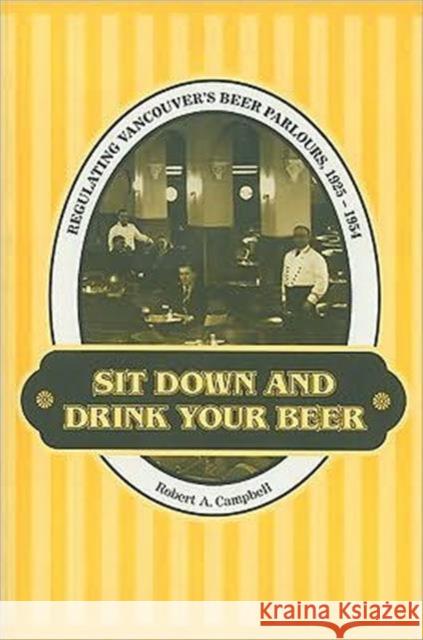Sit Down and Drink Your Beer: Regulating Vancouver's Beer Parlours, 1925-1954 » książka
Sit Down and Drink Your Beer: Regulating Vancouver's Beer Parlours, 1925-1954
ISBN-13: 9780802083777 / Angielski / Miękka / 2001 / 192 str.
Sit Down and Drink Your Beer: Regulating Vancouver's Beer Parlours, 1925-1954
ISBN-13: 9780802083777 / Angielski / Miękka / 2001 / 192 str.
(netto: 125,89 VAT: 5%)
Najniższa cena z 30 dni: 130,58
ok. 22 dni roboczych.
Darmowa dostawa!
When public drinking returned to much of Canada with the end of Prohibition, former hotel saloons were transformed into closely regulated beer parlours, where beer was served in glasses and only to seated patrons. No entertainment was allowed, not even singing, and eventually there were separate entrances and seating for women. The parlours catered to a working-class clientele, and class, gender and sexuality, race, age, and decency were regulated as well as alcohol.Campbell argues that the regulation of the environment of the classic beer parlour, rather than being an example of social control, is best understood as moral regulation and part of a process of normalization. He focuses on the beer parlours of Vancouver from the end of Prohibition in 1925 to the liberalization of liquor laws in 1954 and the creation of new venues, such as cocktail lounges, for the public consumption of alcohol. Approaching his subject not only through the state power exercised by the Liquor Control Board, but also through day-to-day regulation by parlour operators, workers, and patrons, Campbell has compiled an accessible work of crisp and original scholarship that will appeal to social historians as well as anyone interested in the history of alcohol and the regulation of leisure.











